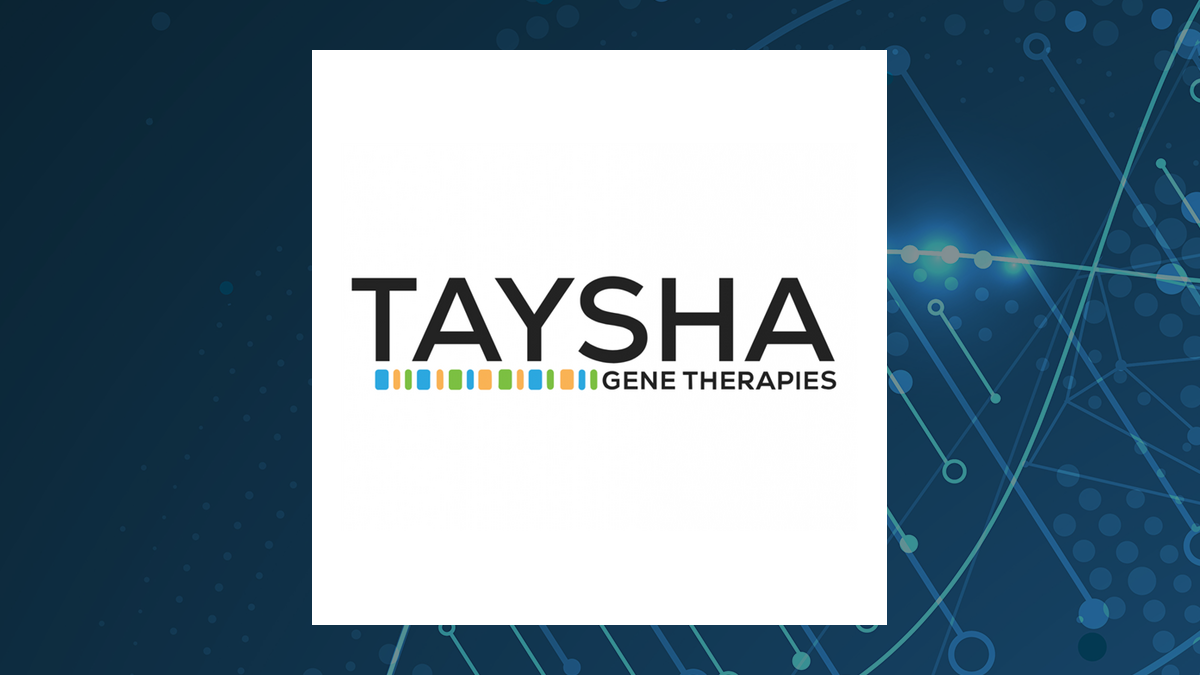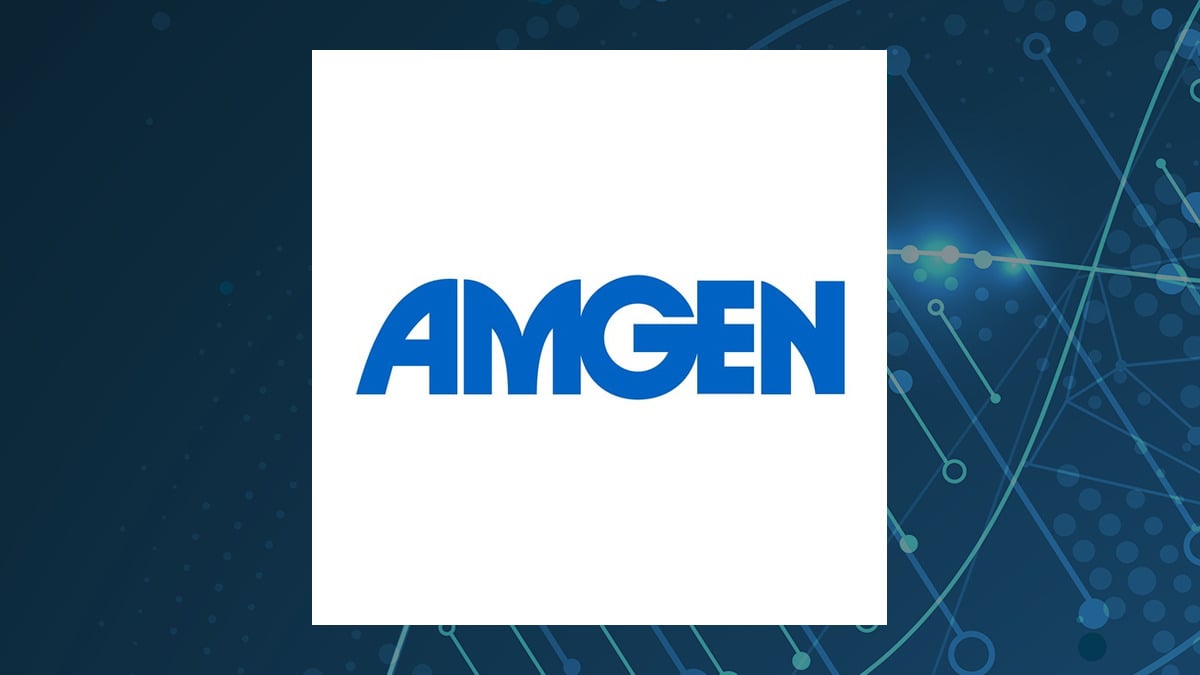Taysha Gene Therapies (NASDAQ:TSHA – Get Free Report) and Amgen (NASDAQ:AMGN – Get Free Report) are both medical companies, but which is the superior stock? We will contrast the two businesses based on the strength of their dividends, risk, institutional ownership, earnings, profitability, valuation and analyst recommendations.
Institutional and Insider Ownership
77.7% of Taysha Gene Therapies shares are owned by institutional investors. Comparatively, 76.5% of Amgen shares are owned by institutional investors. 2.7% of Taysha Gene Therapies shares are owned by company insiders. Comparatively, 0.7% of Amgen shares are owned by company insiders. Strong institutional ownership is an indication that endowments, large money managers and hedge funds believe a company is poised for long-term growth.
Volatility and Risk
Taysha Gene Therapies has a beta of 0.44, indicating that its stock price is 56% less volatile than the S&P 500. Comparatively, Amgen has a beta of 0.6, indicating that its stock price is 40% less volatile than the S&P 500.
Analyst Ratings
| Sell Ratings | Hold Ratings | Buy Ratings | Strong Buy Ratings | Rating Score | |
| Taysha Gene Therapies | 0 | 0 | 8 | 0 | 3.00 |
| Amgen | 1 | 13 | 11 | 1 | 2.46 |
Taysha Gene Therapies presently has a consensus price target of $6.63, suggesting a potential upside of 120.83%. Amgen has a consensus price target of $323.05, suggesting a potential upside of 15.34%. Given Taysha Gene Therapies’ stronger consensus rating and higher possible upside, analysts clearly believe Taysha Gene Therapies is more favorable than Amgen.
Earnings and Valuation
This table compares Taysha Gene Therapies and Amgen”s revenue, earnings per share and valuation.
| Gross Revenue | Price/Sales Ratio | Net Income | Earnings Per Share | Price/Earnings Ratio | |
| Taysha Gene Therapies | $9.92 million | 62.01 | -$111.57 million | $0.63 | 4.76 |
| Amgen | $28.19 billion | 5.34 | $6.72 billion | $7.81 | 35.86 |
Amgen has higher revenue and earnings than Taysha Gene Therapies. Taysha Gene Therapies is trading at a lower price-to-earnings ratio than Amgen, indicating that it is currently the more affordable of the two stocks.
Profitability
This table compares Taysha Gene Therapies and Amgen’s net margins, return on equity and return on assets.
| Net Margins | Return on Equity | Return on Assets | |
| Taysha Gene Therapies | -229.67% | -106.36% | -49.16% |
| Amgen | 13.00% | 168.35% | 11.18% |
Summary
Amgen beats Taysha Gene Therapies on 10 of the 15 factors compared between the two stocks.
About Taysha Gene Therapies
 Taysha Gene Therapies, Inc., a gene therapy company, focuses on developing and commercializing adeno-associated virus-based gene therapies for the treatment of monogenic diseases of the central nervous system. It primarily develops TSHA-120 for the treatment of giant axonal neuropathy; TSHA-102 for the treatment of Rett syndrome; TSHA-121 for the treatment of CLN7 disease; TSHA-118 for the treatment of CLN1 disease; TSHA-105 for the treatment of for SLC13A5 deficiency; TSHA-113 for the treatment of tauopathies; TSHA-106 for the treatment of angelman syndrome; TSHA-114 for the treatment of fragile X syndrome; and TSHA-101 for the treatment of GM2 gangliosidosis. Taysha Gene Therapies, Inc. has a strategic partnership with The University of Texas Southwestern Medical Center. Taysha Gene Therapies, Inc. was incorporated in 2019 and is headquartered in Dallas, Texas.
Taysha Gene Therapies, Inc., a gene therapy company, focuses on developing and commercializing adeno-associated virus-based gene therapies for the treatment of monogenic diseases of the central nervous system. It primarily develops TSHA-120 for the treatment of giant axonal neuropathy; TSHA-102 for the treatment of Rett syndrome; TSHA-121 for the treatment of CLN7 disease; TSHA-118 for the treatment of CLN1 disease; TSHA-105 for the treatment of for SLC13A5 deficiency; TSHA-113 for the treatment of tauopathies; TSHA-106 for the treatment of angelman syndrome; TSHA-114 for the treatment of fragile X syndrome; and TSHA-101 for the treatment of GM2 gangliosidosis. Taysha Gene Therapies, Inc. has a strategic partnership with The University of Texas Southwestern Medical Center. Taysha Gene Therapies, Inc. was incorporated in 2019 and is headquartered in Dallas, Texas.
About Amgen
 Amgen Inc. discovers, develops, manufactures, and delivers human therapeutics worldwide. The company's principal products include Enbrel to treat plaque psoriasis, rheumatoid arthritis, and psoriatic arthritis; Otezla for the treatment of adult patients with plaque psoriasis, psoriatic arthritis, and oral ulcers associated with Behçet's disease; Prolia to treat postmenopausal women with osteoporosis; XGEVA for skeletal-related events prevention; Repatha, which reduces the risks of myocardial infarction, stroke, and coronary revascularization; Nplate for the treatment of patients with immune thrombocytopenia; KYPROLIS to treat patients with relapsed or refractory multiple myeloma; Aranesp to treat a lower-than-normal number of red blood cells and anemia; EVENITY for the treatment of osteoporosis in postmenopausal for men and women; Vectibix to treat patients with wild-type RAS metastatic colorectal cancer; BLINCYTO for the treatment of patients with acute lymphoblastic leukemia; TEPEZZA to treat thyroid eye disease; and KRYSTEXXA for the treatment of chronic refractory gout. It also markets other products, including Neulasta, MVASI, AMJEVITA/AMGEVITA, TEZSPIRE, Parsabiv, Aimovig, LUMAKRAS/LUMYKRAS, EPOGEN, KANJINTI, TAVNEOS, RAVICTI, UPLIZNA and PROCYSBI. The company serves healthcare providers, including physicians or their clinics, dialysis centers, hospitals, and pharmacies. It distributes its products through pharmaceutical wholesale distributors, as well as direct-to-consumer channels. The company has collaboration agreements with AstraZeneca plc for the development and commercialization of TEZSPIRE; Novartis Pharma AG to develop and commercialize Aimovig; UCB for the development and commercialization of EVENITY; Kyowa Kirin Co., Ltd. for rocatinlimab development and commercialization; and BeiGene, Ltd. for oncology products expansion and development. Amgen Inc. was incorporated in 1980 and is headquartered in Thousand Oaks, California.
Amgen Inc. discovers, develops, manufactures, and delivers human therapeutics worldwide. The company's principal products include Enbrel to treat plaque psoriasis, rheumatoid arthritis, and psoriatic arthritis; Otezla for the treatment of adult patients with plaque psoriasis, psoriatic arthritis, and oral ulcers associated with Behçet's disease; Prolia to treat postmenopausal women with osteoporosis; XGEVA for skeletal-related events prevention; Repatha, which reduces the risks of myocardial infarction, stroke, and coronary revascularization; Nplate for the treatment of patients with immune thrombocytopenia; KYPROLIS to treat patients with relapsed or refractory multiple myeloma; Aranesp to treat a lower-than-normal number of red blood cells and anemia; EVENITY for the treatment of osteoporosis in postmenopausal for men and women; Vectibix to treat patients with wild-type RAS metastatic colorectal cancer; BLINCYTO for the treatment of patients with acute lymphoblastic leukemia; TEPEZZA to treat thyroid eye disease; and KRYSTEXXA for the treatment of chronic refractory gout. It also markets other products, including Neulasta, MVASI, AMJEVITA/AMGEVITA, TEZSPIRE, Parsabiv, Aimovig, LUMAKRAS/LUMYKRAS, EPOGEN, KANJINTI, TAVNEOS, RAVICTI, UPLIZNA and PROCYSBI. The company serves healthcare providers, including physicians or their clinics, dialysis centers, hospitals, and pharmacies. It distributes its products through pharmaceutical wholesale distributors, as well as direct-to-consumer channels. The company has collaboration agreements with AstraZeneca plc for the development and commercialization of TEZSPIRE; Novartis Pharma AG to develop and commercialize Aimovig; UCB for the development and commercialization of EVENITY; Kyowa Kirin Co., Ltd. for rocatinlimab development and commercialization; and BeiGene, Ltd. for oncology products expansion and development. Amgen Inc. was incorporated in 1980 and is headquartered in Thousand Oaks, California.
Receive News & Ratings for Taysha Gene Therapies Daily - Enter your email address below to receive a concise daily summary of the latest news and analysts' ratings for Taysha Gene Therapies and related companies with MarketBeat.com's FREE daily email newsletter.
